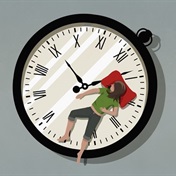- A recently published, long-term study assessed whether insomnia in children persisted into adulthood.
- The researchers found persistent insomnia in almost 40% of the participants.
- Experts, however, have some tips for parents and guardians to encourage healthy sleep habits in children.
Studies have shown how important it is for the physical and mental growth of children to get a good night’s sleep, and how their performance and development take a knock when they are sleep-deprived.
That is why a recent study, published in the journal Pediatrics, has been gaining a lot of attention. According to the findings, nearly half of the subjects who suffered from insomnia between the ages of 5 and 12 years were likely to have insomnia into young adulthood (20 to 30s).
Those who battled insomnia during adolescence (aged 16 years on average) also had a five-and-a-half times higher risk of worsening symptoms into adulthood, compared to adolescents who had normal sleep patterns.
The researchers say this is the first long-term study to use both subjective and objective measures to assess the developmental trajectories of childhood insomnia symptoms.
They underscored the need for children to receive intervention: “Early sleep interventions are a health priority because paediatricians should not expect insomnia symptoms to developmentally remit in a high proportion of children,” they wrote.
Unexpected findings
The study authors, from the Sleep Research & Treatment Centre at Penn State University College of Medicine, noted that childhood insomnia is not uncommon.
"Given that up to 25% of children, 35% of adolescents and 45% of young adults suffer from insomnia symptoms, we were interested in learning how these symptoms evolve over time as the child grows into adulthood,” lead author Dr Julio Fernandez-Mendoza, associate professor of psychiatry and behavioural health at the sleep centre, said in a news release.
A 2005 study found that in a normal school-age population, 31% of children aged six to 13 years reported having disorders of initiating and maintaining sleep.
Said Fernandez-Mendoza: “The key finding of this study is that insomnia symptoms in childhood are much more likely to persist over time than we previously believed."
What causes childhood insomnia?
Several factors can play a role in childhood insomnia, including genetic predisposition, which plays a minor role, Fernandez-Mendoza told HealthDay. Other factors include medical, behavioural and environmental factors.
Three phrases
The researchers conducted a detailed study, following just over 500 children aged five to 31 years. It was conducted in three phases.
In the first phase, between 2000 and 2005, all the children participants completed questionnaires on their sleep. The team also tracked their sleep habits in real time via sleepovers in a lab setting. Based on this part of the study, nearly one-quarter of the pre-adolescent children had insomnia.
Around six to 13 years later, the group, who were then around age 16, underwent the same assessments as adolescents. They found that around 36% of them were struggling with insomnia.
The third and final phase took the form of a follow-up sleep survey. This was conducted between 2018 and 2021. The average age of the participants was 24 years.
What they found
Nearly 30% of the pre-adolescent group who had insomnia had gone on to beat it as adults. Additionally, around 11% of the participants who had struggled with sleep as adolescents also managed to overcome their sleepless nights by their 20s and early 30s.
Unfortunately, however, close to 19% of participants with a history of the sleep disorder as children went on to experience intermittent insomnia as adolescents and adults. More than four in 10 continued to face sleep deprivation.
“The odds of insomnia symptoms worsening into adult insomnia (22.0% of children, 20.8% of adolescents) were 2.6-fold and 5.5-fold among short-sleeping children and adolescents, respectively,” the authors reported.
The findings, said Fernandez-Mendoza, underscore the importance of addressing insomnia at a young age, to prevent the development of a lifelong problem.
Learning good sleep habits
It's vital for children to learn good sleep habits early in life, Dr Suzan Jaffe, who specialises in treating insomnia in children and adults in Florida, previously told Health24.
"The sleep habits that are developed early in life are the sleep habits we have as adults," Jaffe said. "It's like eating habits."
General practitioner, Dr Yashica Khalawan, shared some tips with Parent24 on implementing good sleep hygiene for children. Here are some of them:
- Set a consistent bedtime routine.
- Set a time for bed.
- Avoid dietary stimulatory at bedtime, such as fizzy drinks and chocolate.
- Avoid vigorous activity two hours before bedtime.
- Limit screen time one hour before bedtime.
- Ensure the room is sleep ready: 20 degrees Celsius.
- Set a time for your child to discuss any worries or concerns.
*Sign up for our Daily Dose newsletter here.
READ | Children can suffer from insomnia too
READ | 10 things you should never say to someone who suffers from insomnia
READ | Strange, vivid dreams: Will they stop when Covid-19 lockdowns end?




 Publications
Publications
 Partners
Partners












